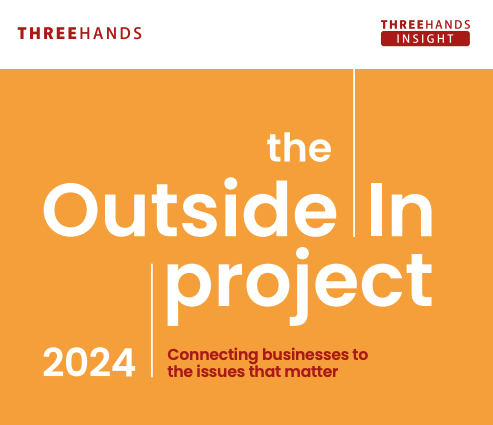

Alongside other invited participants, Tim and three members of the People’s Panel on AI took part in a session of the Three Hands Outside In Project, sharing public perspectives on the use and governance of artificial intelligence with over 40 representatives of 11 businesses from finance, healthcare and utilities.
Over 90 minutes, the discussions touched on themes including:
- The pressure on consumer businesses to adopt AI including pressure coming from account managers at upstream technology providers, encouraging use of an increasing number of generative AI tools available on their cloud platforms. When equipped with a better understanding of their customer needs, wants and attitudes, businesses can themselves be better customers of AI solutions - selecting, evaluating and using tools that meet clear identified needs.
- Understanding the impact of AI on different communities and making sure customers have choice to opt-in or out. It’s important to have early ways of detecting when particular customer groups are adversely affected by AI systems, rather than waiting for frustrations to overflow into complaints.
- A demand for regulation and common principles that provides a level playing field for businesses adopting AI. In the absence of, or to go beyond, government regulation, in my breakout group we explored the opportunity for businesses to learn from approaches like the Camden Data Charter, and to co-develop pledges or commitments on AI with their customers and communities, and to secure board-level sign-up to these.
- Education and awareness and the opportunity for staff and communities to learn about AI together, to understand the opportunities and challenges it presents, and to build trust together.
- The need for inclusive, informed and ongoing dialogue to guide decisions about AI adoption based on a more rounded understanding of how it impacts on staff, company and communities.
Over the coming months at Connected by Data we’ll be continuing to explore how businesses can embed participatory practices in order to give communities a stronger role in shaping the future of data and AI. If you would like to find out more, do get in touch.